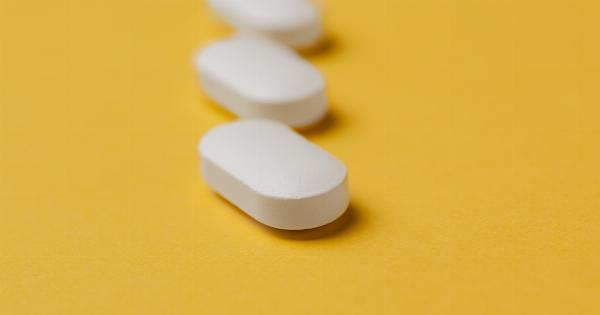Vitamin B12 is an essential nutrient that plays a crucial role in the proper functioning of the brain and nervous system. Its deficiency can lead to a range of health problems, one of which is depression.
Depression is a mental health condition characterized by persistent sadness, loss of interest, and a lack of energy.
The Importance of Vitamin B12
Vitamin B12, also known as cobalamin, is an essential nutrient that our bodies cannot produce on their own. It is primarily found in animal-based foods, such as meat, fish, eggs, and dairy products.
Vitamin B12 plays a key role in the production of red blood cells, DNA synthesis, and the proper functioning of the nervous system.
Deficiency in vitamin B12 can occur due to various factors, including poor dietary intake, certain medical conditions, and certain medications.
Vegetarians and vegans are particularly at risk of developing a deficiency, as plant-based foods do not naturally contain vitamin B12.
Vitamin B12 Deficiency and Depression
Recent research has established a link between vitamin B12 deficiency and depressive symptoms. However, the exact mechanisms behind this association are still not fully understood.
Several theories suggest that vitamin B12 plays a crucial role in the production of neurotransmitters, specifically serotonin and dopamine, which are responsible for regulating mood and emotions. A deficiency in vitamin B12 may disrupt these neurotransmitter levels, leading to the development or worsening of depression.
Additionally, vitamin B12 deficiency has been found to cause alterations in brain structure and function. Studies have shown that individuals with low levels of vitamin B12 may have reduced brain volume and impaired cognitive function.
These structural and functional changes in the brain can contribute to the development of depressive symptoms.
Common Symptoms of Vitamin B12 Deficiency
Vitamin B12 deficiency can present with various symptoms, some of which overlap with those of depression. Recognizing these symptoms is crucial for early detection and timely intervention. Here are some common symptoms of vitamin B12 deficiency:.
- Constant fatigue and weakness
- Depressed mood
- Lack of motivation
- Difficulty concentrating and memory problems
- Irritability and mood swings
- Anxiety and restlessness
- Changes in appetite, leading to weight loss or gain
- Pale or yellowish skin
- Tingling or numbness in the hands and feet
- Muscle weakness
Diagnosing Vitamin B12 Deficiency
If you suspect you may have a vitamin B12 deficiency, it is important to consult a healthcare professional. They will evaluate your symptoms, medical history, and perform specific tests to confirm the diagnosis.
The most common diagnostic test for vitamin B12 deficiency is a blood test that measures the levels of vitamin B12 in your blood.
Other tests, such as a complete blood count (CBC) or a test for homocysteine and methylmalonic acid levels, may also be performed to assess the extent of the deficiency and its potential impact on your health.
Treating Vitamin B12 Deficiency and Depression
The treatment for vitamin B12 deficiency involves increasing the intake of vitamin B12 through dietary changes and/or supplementation.
If your deficiency is due to a lack of dietary intake, your healthcare professional may recommend including more vitamin B12-rich foods in your diet, such as lean meats, fish, dairy products, and eggs. In some cases, oral supplements or vitamin B12 injections may be necessary to restore adequate levels of the vitamin.
When it comes to managing depressive symptoms associated with vitamin B12 deficiency, treating the underlying deficiency is essential. As the vitamin levels in the body normalize, the depressive symptoms may also improve.
However, for individuals with diagnosed depression, additional interventions such as therapy or medication may be necessary.
Preventing Vitamin B12 Deficiency and Depression
Preventing vitamin B12 deficiency and its associated symptoms, including depression, is crucial for overall well-being. Here are some preventive measures:.
- Ensure a well-balanced diet that includes adequate sources of vitamin B12.
- If you follow a vegetarian or vegan diet, consider supplementation or fortified foods that provide vitamin B12.
- Regularly monitor your vitamin B12 levels, especially if you are at higher risk of deficiency.
- Discuss any medications you are taking with your healthcare professional, as certain medications can interfere with vitamin B12 absorption.
- Seek medical attention if you experience any symptoms that may indicate a vitamin B12 deficiency.
Conclusion
Vitamin B12 deficiency can have significant impacts on our physical and mental health, including the development or worsening of depressive symptoms.
It is important to recognize the symptoms of vitamin B12 deficiency and seek appropriate medical assistance for diagnosis and treatment. By maintaining a well-balanced diet and being mindful of our vitamin B12 intake, we can prevent deficiencies and promote overall well-being.




























